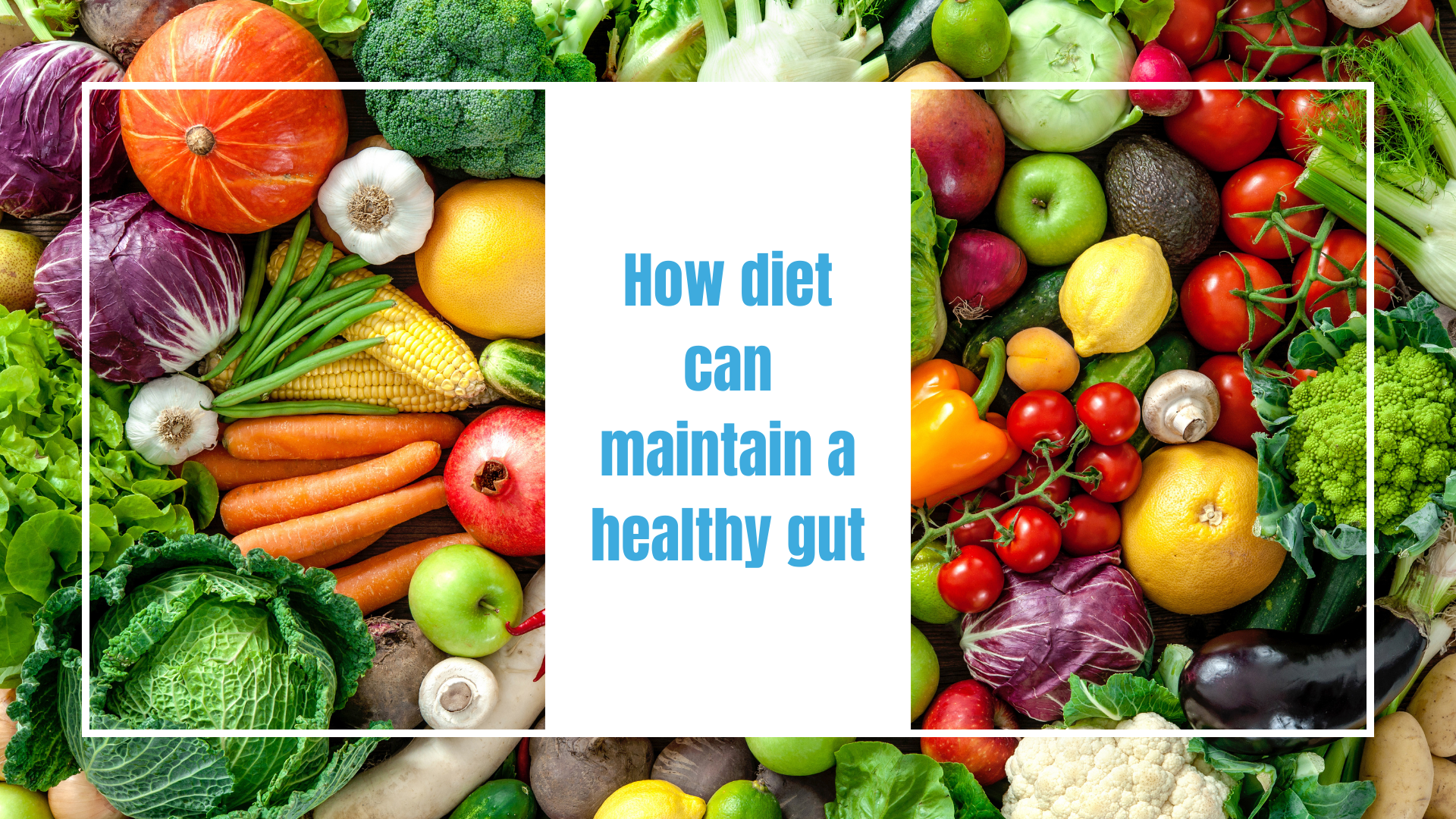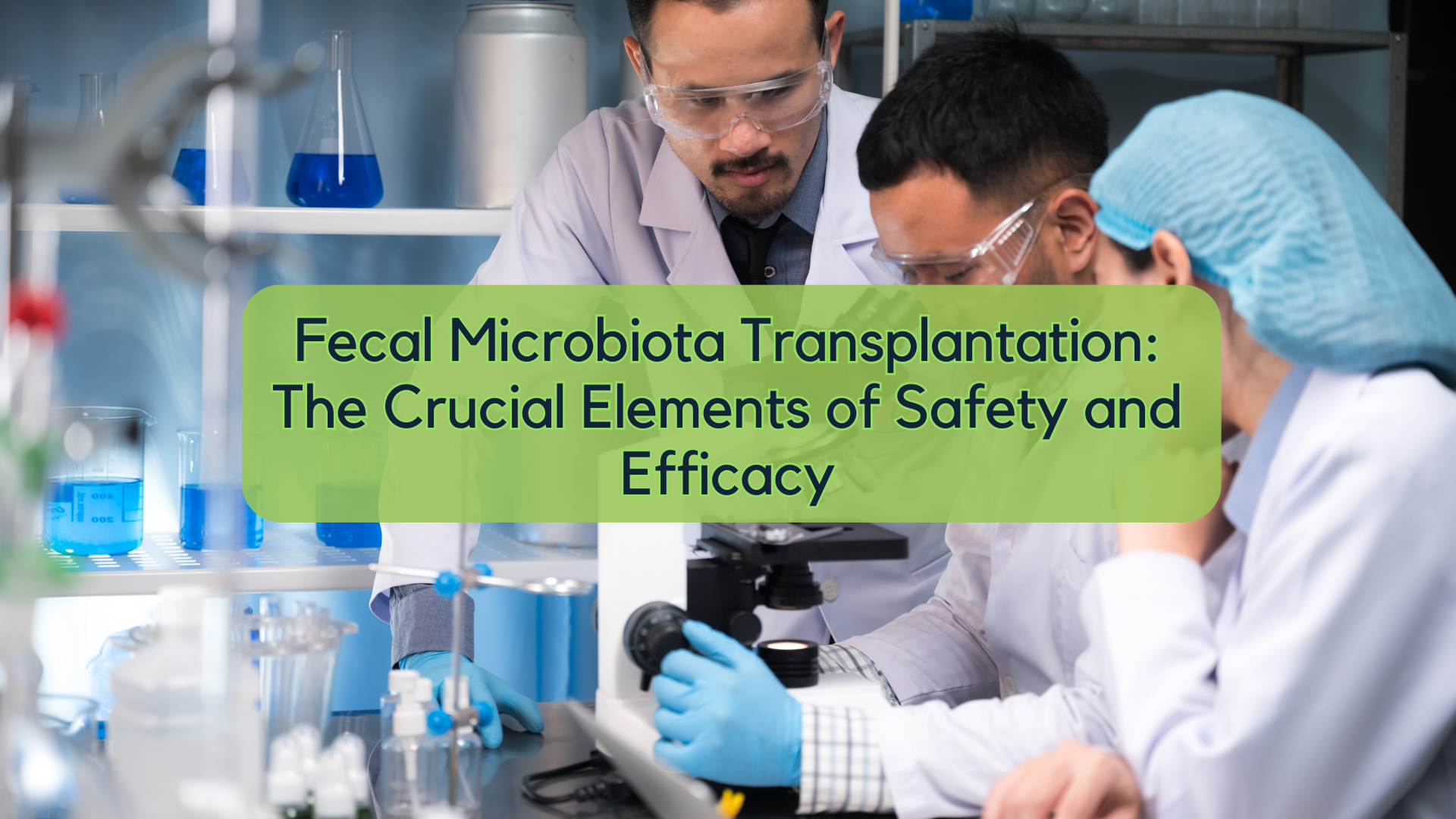Your gut microbiome is essential to your overall health and well-being 1–5. It is complex and dynamic, consisting of bacteria, viruses and other microorganisms which live in your gastrointestinal tract 6–10. The gut microbiome plays a crucial role in human health, and its balance and diversity can be affected by many environmental factors, with the most influential being diet 8,10–15. While genetics influence the gut microbiome, research has shown that diet is the primary factor shaping it, accounting for up to 57% of gut microbiota alterations, whereas genetics account for no more than 12% 16–20. The idea that diet modification could help alter the gut microbiome to replace harmful microbes with useful ones has been suggested for over 100 years 15,21, and over time, diet has emerged as the driving factor in microbiota composition and function 18,22–24.
Why diet plays a significant role in modifying the gut?
Changes in diet have been proven to be one of the most powerful ways to modify the gut microbiome, with the effects of dietary interventions being able to exert change in microbiota composition within 24 – 48 hours 12,25–30. Diet is essential for overall health and the survival of the trillions of microbes in our gut microbiome 26. Actually, diet is a critical component in the bi-directional relationship between humans and their gut microbes, making dietary factors one of the more potent modulators of gut microbiota composition and function 26,31. Gut microbes use ingested nutrients for fundamental biological processes and generate a variety of metabolites, such as vitamins and neurotransmitters, which can substantially impact human physiology in both positive and negative ways 26,31–33.
What dietary factors make the most significant impacts on gut health? Diversity, Diversity, Diversity!
Our diet and eating habits can positively affect microbiota composition, and it is even suggested that our food preferences and appetite might come from our gut microbiota, as individual foods have been shown to increase the growth of specific types of bacteria 17,34–37. As diet is accepted as the most potent way to shape the gut microbiota, with more than 50% of the variability in the microbiota accounted for by diet, what is the most important factor in a diet to help with gut health? 12,18,22,38–40. The short answer is diversity!
A diverse diet, including a wide variety of whole foods, including vegetables, fruits, nuts and seeds with a healthy amount of fats and proteins, is associated with greater microbiota diversity and stability 28,41–43. These changes in the gut microbiota from eating a diverse and healthy diet are significantly associated with improved health, which reveals the importance of a high-quality, balanced diet over dietary supplementation of individual nutrients; it is all about diversity! 17,24,28,44.
While eating a diverse diet facilitates positive shifts in microbial composition, long-term elimination or excessive reduction of nutrients has been shown to produce microbial losses, which are challenging to reverse 28,41. So the exclusion of essential nutrients through dietary choices, such as fad or restrictive diets, may negatively impact gut microbial diversity, so it might be best to focus on increasing the diversity and quality of one’s diet vs what to take out 28,45,46
How diet impacts health via the gut microbiome.
Our gut microbiota is vital, and while what defines a healthy gut has been hard to explain, factors that can manipulate the makeup of the gut microbiota may present a powerful means to alter diverse aspects of human health and disease 23. Reshaping the gut microbiome through diet may offer a new therapeutic approach to induce changing overall health, including disease development, progression and treatment 23,26,47. This is supported by research showing that gut dysbiosis, which is seen in many chronic diseases ranging from metabolic disease to gastrointestinal disorders and colorectal cancer, can be linked to poor diet 17,26,48–50.
The malleability of the gut microbiota, its influence throughout the body, and its responsiveness to diet make it a highly attractive target for disease prevention and intervention 23,26. It’s possible that diet and nutrition might outweigh genetic and environmental factors in determining health outcomes for many chronic conditions such as diabetes, obesity, IBS, IBD, colorectal cancer, and depression through its influence on metabolism, inflammation and gut metabolites via the gut microbiome 17,49–51.
Overall, the evidence suggests that diet and the microbiome are closely linked 12,15. Diet directly affects the microbiome's composition, and the microbiome can influence dietary choices and overall health 17,34–37. Therefore, understanding how diet affects the microbiome is an important area of research and provides a promising therapeutic avenue that could have implications for many aspects of health and disease prevalence 17,49–51.
At Novel Biome, we're passionate about the importance of the gut microbiome and the transformative potential of Fecal Microbiota Transplantation (FMT) treatment to restore health. As an FMT contract manufacturer, we leverage our years of experience in FMT to manufacture high-quality FMT products utilizing our highly-screened donors and stringent manufacturing standards. If you are interested in learning more about our FMT products and manufacturing capabilities, please contact us HERE or to register as a clinical partner to order FMT products, click HERE.
Reference: 1. Bresalier, R. S. & Chapkin, R. S. 2020, 2. Ser, H.-L. et al. 2021, 3. Thaiss, C. A. et al. 2016, 4. Thursby, E. & Juge, N. 2017, 5. Yang, I. et al. 2016,. 6. Choi, H. H. & Cho, Y.-S. 2016, 7. Hooper, L. V. et al. 2012, 8. Perez-Muñoz, M. E. et al. 2017, 9. Sommer, F. & Bäckhed, F. 2013, 10. Wilson, B. C. et al. 2019, 11. Hall, A. B. et al. 2017, 12. Moles, L. & Otaegui, D. 2020, 13. Odamaki, T. et al. 2016, 14. The Human Microbiome Project Consortium. 2012, 15. Trakman, G. L. et al. 2022, 16. Clark, A. & Mach, N. 2016, 17. Hills, R. et al. 2019,. 18. Rothschild, D. et al. 2018, 19. Wilson, A. S. et al. 2020, 20. Zhang, N. et al. 2018, 21. Podolsky, S. H. 2012, 22. Muegge, B. D. et al. 2011, 23. Wastyk, H. C. et al. 2021, 24. Zhernakova, A. et al. 2016, 25. Costea, P. I. et al. 2017, 26. Gentile, C. L. & Weir, T. L. 2018, 27. Goodrich, J. K. et al. 2016, 28. Leeming, E. R. et al. 2019, 29. Sonnenburg, J. L. & Bäckhed, F. 2016, 30. Sun, Y. et al. 2020, 31. Ramos, S. & Martín, M. Á. 2021, 32. Forslund, S. K. 2023, 33. Yang et al. 2020, 34. Falony, G. et al. 2016, 35. Fetissov, S. O. 2017, 36. Li, H. et al. 2021, 37. Novotný, M. et al. 2019, 38. Broussard, J. L. & Devkota, S. 2016, 39. David, L. A. et al. 2014, 40. Oriach, C. S. et al. 2016, 41. Heiman, M. L. & Greenway, F. L. 2016, 42. Johnson, A. J. et al. 2019, 43. McDonald, D. et al. 2018, 44. Chen, F. et al. 2019, 45. Hill, P. et al. 2017, 46. Reddel, S. et al. 2019, 47. Kolodziejczyk, A. A. et al. 2019, 48. Brennan, C. A. & Garrett, W. S. 2016, 49. Conlon, M. & Bird, A. 2014, 50. Singh, R. K. et al. 2017, 51. Thorburn, A. N. et al. 2014.


 By: Dr. Shaina Cahill, Ph.D. (Director Of Operations and Medical Affairs)
By: Dr. Shaina Cahill, Ph.D. (Director Of Operations and Medical Affairs)





